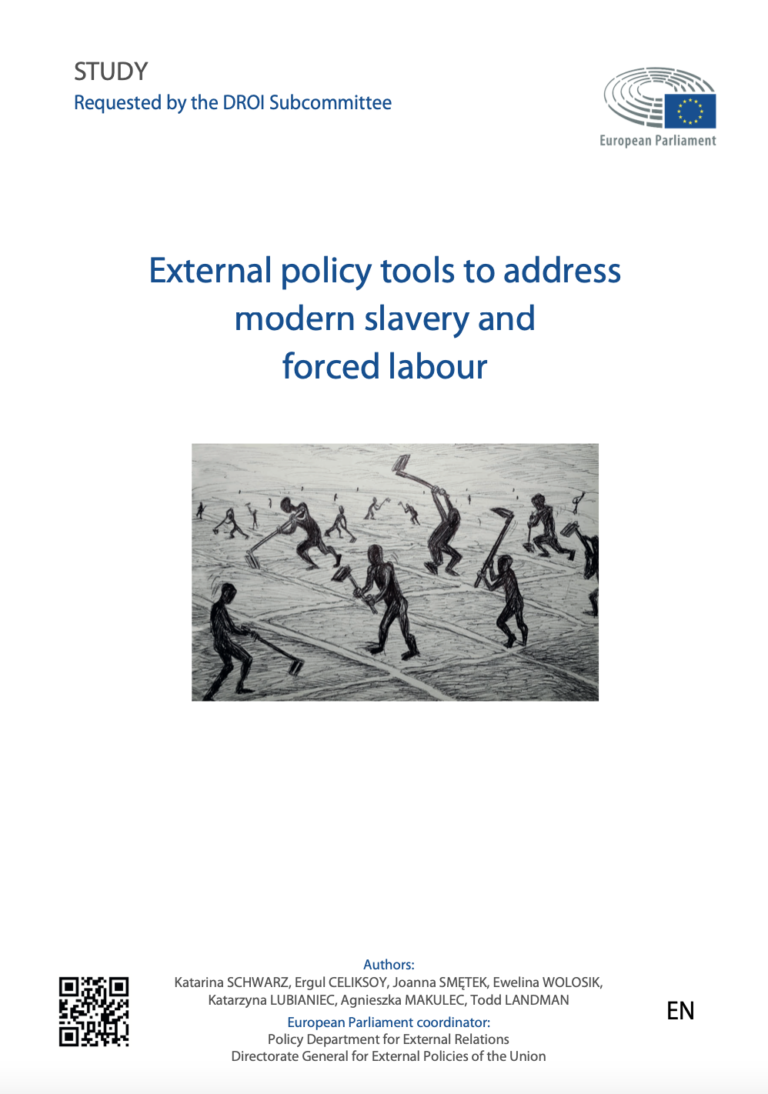The paper presents the findings of a study on external policy measures adopted by the European Union and like-minded partners to address modern slavery in third countries. The study is intended to support the European Parliament in monitoring EU external action and initiating the refinement of existing or the adoption of new external policy instruments relating to forced labour and modern slavery The study provides a review of the different external policy tools available to the EU to contribute to the eradication of modern slavery and forced labour in third countries, and assesses factors contributing to, and inhibiting, the effectiveness of these measures in practice. The analysis covers key areas of concern for external policy related to modern slavery within the domains of trade, development, and foreign policy. It further provides an overarching framework of considerations and approaches for the European Union in designing, implementing, and evaluating policy and programming related to modern slavery.

